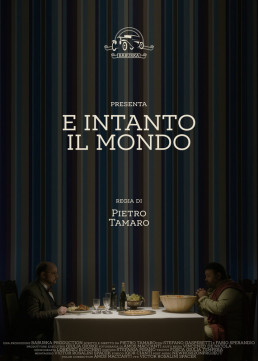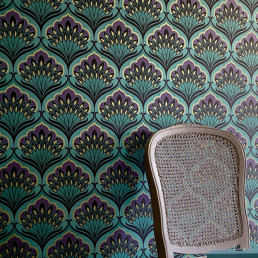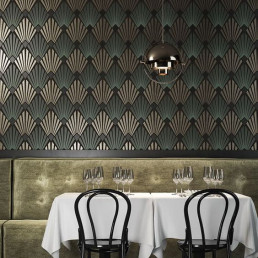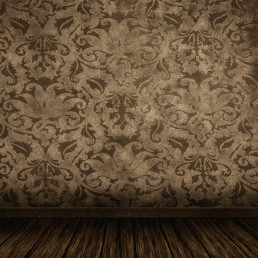

Two nameless characters share a place outside space and time. One of them, called the Professor, reads books after books, while the other, the holy man, meditates practicing a mix of all the oriental disciplines.
Their unstopping routine is interrupted only by their meals, which they consume at a rich table, and by a window, that occasionally opens to the world, who’s noises break the bubble of silence the two live in; in fact, the window is every time shut closed by one of them, since the noises disturb their research. As the situation proceeds in its repetition, the food they eat at their meals gets less and less, until is just a pale imitation of the original quantity.
The two peak out the window for the first time, since now there’s no noise coming from the outside. What they see brings them back to the reality that they’ve ignored for too long.
The final goal of this work is to bring the viewer to a meditation on the value that is given to knowledge and self-knowledge by the westernized world. In fact, despite the intellectual activities (represented by the Professor), as well as the ones relative to meditation (obviously incarnated by the Holy man) are considered highly noble and worthy, the tendency of the westernized world to shut itself in these introspective activities in often tied to the alienation towards the surrounding world. Especially in times like these, in which concrete problems like the climatic changes and their consequences need an immediate response from the civil society, the purely auto referential intellectual activities risk to be useless on the practical side and even, in the worst cases, damaging, since they’re able to make forget reality.
The short movie wants to represent the detachment from reality of those that elevate knowledge, or self-knowledge, to the status of only goal in life; and it does so through metaphors: the food that shrinks, the window that opens and that is shut closed every time, the characters’ inability to speak and to produce anything (something written, or a word of comfort for the world) symbol this relation between the “thinking” part of society and the world’s hard truth, with its extreme consequences. The style that has been used to shoot this work and represent this message is essential: the images frame the two characters always as unmoving portraits, closed in their daily repetition, the details underline the few objects with minimalism, this way showing how important they are for them.
The pictorial quality of the images want to create a sense of universalism of the metaphor.
The Director
Pietro Tamaro, a degree in Cinema at the University of Bologna in 2008, is one of Baburka production’s founding members, he’s responsible for the department of Direction and Screenwriting, he’s the author or co-author of all the Baburka’s projects, as the short movie DeadBlood, of which he’s also director. In the years he has directed various music videos and commercial spots. As for the projects in which Baburka has been the Executive production, like the featured films “Franky” by Joel Anitori (2016) and “Cattivo Sangue” by Simone Hebara (2018), and over a dozen shot movies, he has worked as First assistant director as well as executive producer. He has also directed the featured film “Fratelli di Sangue”, produced by KC Films in 2015 and distributed at the end of 2016 by Uci Cinema.
E intanto il mondo
DirectionPietro TamaroProductionBaburka ProductionCastStefano Gasperetti, Fabio PompiliCountryItalyYear2020LanguageMuteColor CorrectionAmos MaccantiEditingVictor SpacekAudioStereoCostumesStefania Pisano
















